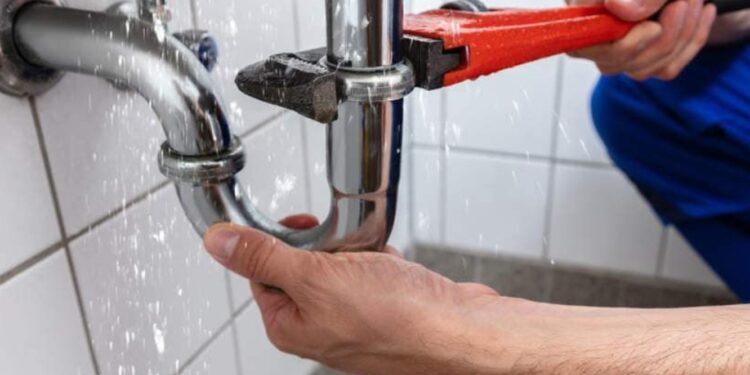Every home has a network of pipes running through the walls, under the house, and across your yard. In most cases, you barely see the pipes and you don’t spend much time thinking about them. But, they exist for a reason; to eliminate the wastewater and waste products from your home.
Unfortunately, because they generally just do their job, most people don’t spend a lot of time thinking about their pipes. You may call your local emergency plumber like ontimelocalplumber.com.au when you have a nasty clog or a leaking pipe. It’s a good idea to get professional help when dealing with wastewater, there are a number of health risks attached to it.
Why You Should Think About Your Pipes
Thinking about your pipes is a good idea. When you’re dealing with a leak in your supply pipe it can cost you a significant sum of money. Equally, a leak in your waste pipes can allow sewage into your home or garden, not a pleasant experience.
The simplest way to prevent issues from occurring is to have your plumber inspect your pipes annually. They should visually inspect all pipes to ensure the joints are secure, there is no corrosion, and washers are working properly. A plumber can also use a drain camera to inspect your waste pipes and ensure they are clear. This helps to prevent issues from happening. After all, do you want a blockage in your home?
Of course, plumbers cost money, although this is generally significantly less than the cost of repairing neglected pipes. You may be tempted to look after your pipes yourself.
You can invest in your own drain camera and inspect the inside of your waste system, you can also visually inspect the outside of your supply and waste pipes. However, there are four things that you should never do to your pipes, these four things are more likely to do harm than good.
1. Use drain Cleaners
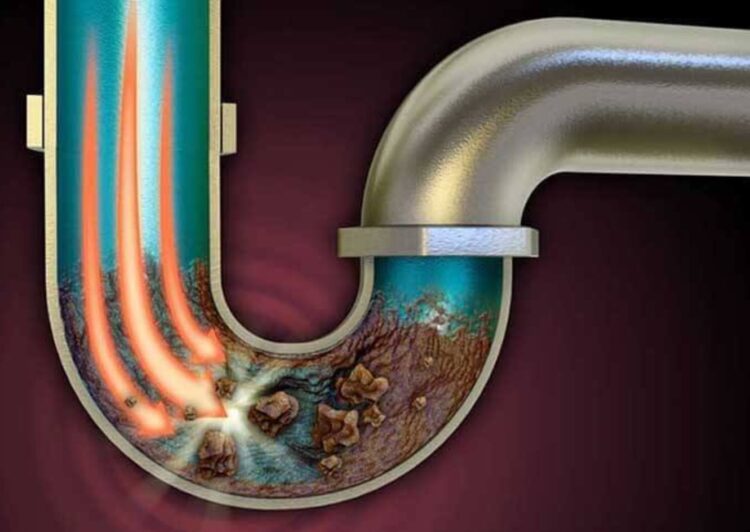
If you have a clog then you may reach for the plunger in an effort to shift it. This is a good starting point. Unfortunately, many people simply push the plunger up and down and get nowhere. The point of a plunger is to create a seal. The up and down movement then creates a vacuum that shifts the blockage. You don’t need wild up and down movements to do this.
Because the plunger is unsuccessful many people pour drain cleaning products down the drain. These are effective at clearing the blockage. However, drain cleaners use caustic chemicals to effectively eat through the blockage. These caustic chemicals will also eat away at the inside of your pipes. Over time this can damage the pipes enough to cause leaks or other issues.
There are natural alternatives that can unblock your drains without damaging the pipes, use them.
2. Add Heat To Frozen Pipes
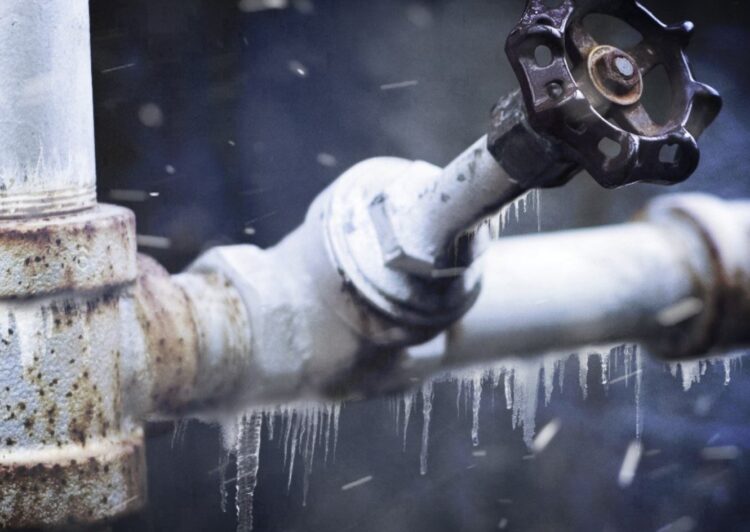
The best approach to pipes that contain water is to properly insulate them. This ensures they stay warm even when the temperature drops below freezing. That stops the water from freezing in the pipes.
When water freezes it expands, effectively turning from a liquid to a solid. This places pressure on the pipes, specifically the joints in the pipes. If the joints or the pipes are old the pressure can cause them to crack, giving you a serious water leak when the frozen water defrosts.
Of course, the more pressing issue is the lack of water in your home. You’ll want to thaw your pipes. However, applying heat directly to the pipes is not the best idea. The heat from a hairdryer or a propane torch can damage the pipes. It can also encourage the ice to defrost too quickly, increasing the pressure on joints and the likelihood of leaks.
You need to let the pipes defrost slowly to preserve them, it’s best to place warm towels or rags onto the pipes to encourage the slow defrost. You can then take steps to prevent them from freezing in the future.
3. Grease In The Pipes
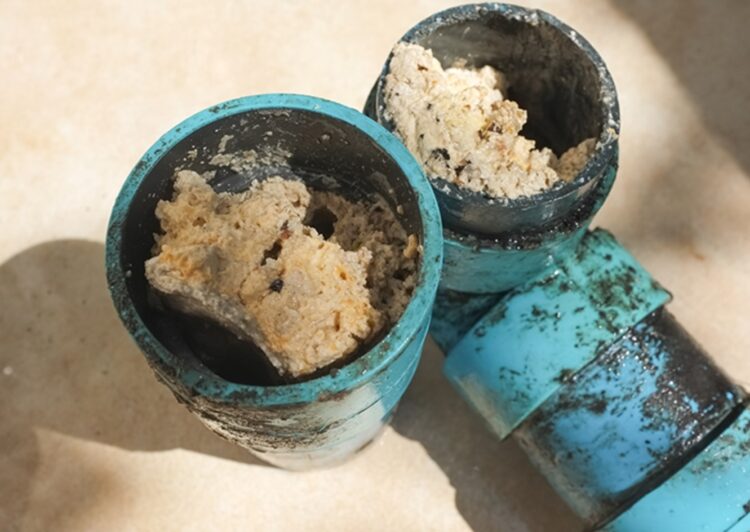
Grease, when warm, is a liquid. It’s difficult to dispose of in the bin as it will pool at the bottom of the bin and create a mess that will need sorting in the future. That’s why many people pour the greases down their drains. After all, it’s a liquid which means it will flow through the drains, right?
The answer is no. As it moves through the drains the grease will cool, causing it to solidify. It will then start to block the pipes. The result is that other waste items will sit against the grease, increasing the clog until the pipe is blocked.
Grease hardens the longer it is in your pipes, making it particularly difficult to remove.
In addition, if the grease makes it through your pipes and to the main sewer it will combine with soap and other waste components to create large blockages which can create problems for a huge number of households.
It’s simpler to let the grease cool and then put it into your bin.
4. Food Down The Pipes
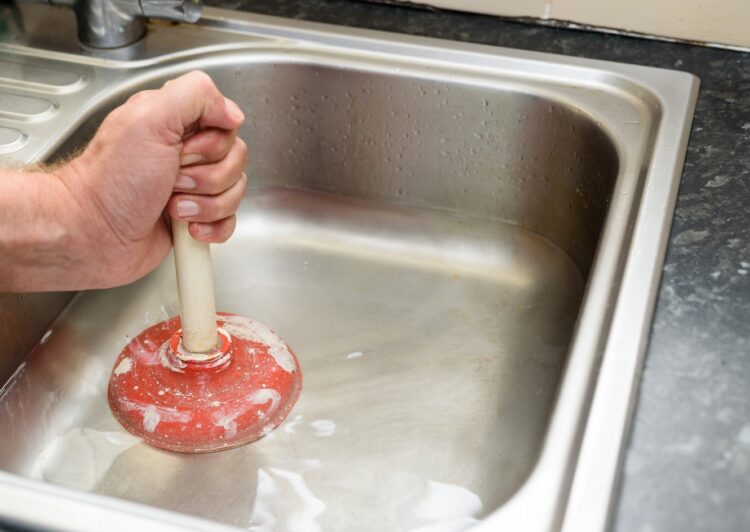
No matter how well you scrape the plates and the pans before you wash them, there always seems to be food debris left at the bottom of the sink when you’ve finished. You can scoop this out or you can use a fork to mash them up and allow them to go through the drain.
Unfortunately, these small pieces of food will merge together, along with grease and soap particles to create a blockage in your drains. You’ll then need to call a plumber to take your plumbing apart and clean it or replace it.
It’s much simpler to ensure the food waste goes into your bin or a composting site. You’ll be helping the environment while preventing yourself from the pain of blocked pipes.
Don’t forget, alongside thinking about what you do to your pipes, you should indulge in an annual inspection from your plumber. This will ensure your plumbing system is working properly and can save you a lot of money.

